Air New Zealand, which has recently been considering multiple net zero aviation pathways, has surprisingly scrapped its 2030 science-based carbon intensity reduction target, citing challenges to the availability of new aircraft and alternative fuels, and support from governments and regulators for decarbonisation initiatives. The airline’s CEO, Greg Foran, singled out potential delays to the company’s fleet renewal plans as a specific impediment to achieving 2030 targets, and said a new near-term carbon emissions reduction target would be developed to more closely align with the global availability of new aircraft and fuels. The announcement coincided with a joint announcement by the New Zealand and Australian governments to collaborate on the development of sustainable aviation fuel and green hydrogen as part of a broader agreement on sustainable energy and trade between the two nations. To help speed up SAF supply and use, New Zealand aviation companies will be invited to participate in Australia’s Jet Zero Council.
Air New Zealand announced an interim 2030 target on its journey to a 2050 net zero emissions goal in 2022, which was validated by the Science Based Targets initiative (SBTi). It required a 28.9% reduction in carbon intensity by 2030 from a 2019 baseline, equating to a 16.3% reduction in absolute emissions over the period. The airline said at the time it provided a “clear signal of where we need to be by 2030, in order to meet the 2050 goal.”
The airline’s shock decision to axe the target and withdraw from the SBTi was announced in a statement to the New Zealand and Australian stock exchanges, in which the carrier referenced widespread fleet, fuel and policy impediments to meeting its promised decarbonisation targets.
“In recent months, and more so in the last few weeks, it has become apparent that potential delays to our fleet renewal plan pose an additional risk to the target’s achievability,” said Foran. “It is possible the airline may need to retain its existing fleet for longer than planned due to global manufacturing and supply chain issues that could potentially slow the introduction of newer, more fuel-efficient aircraft into the fleet.
“As such, and given so many levers needed to meet the target are outside our control, the decision has been made to retract the 2030 target and withdraw from the SBTi immediately.”
Although he did not specify which aircraft renewal programmes were impacted, the airline had planned to replace or upgrade its fleet of 23 Q300 turboprop airliners by 2030 and to progress similar plans for its larger and younger fleet of ATR 72 aircraft later in the decade.
Last year, as part of its Mission Next Gen programme to identify future aircraft and propulsion systems, the airline selected partners including US-based Universal Hydrogen, which proposed a system whereby existing aircraft were retrofitted with new hydrogen-electric propulsion systems, and containers of the fuel were loaded directly onto the aircraft they would power, negating the need for ground-based hydrogen fuelling infrastructure. Last month, Universal Hydrogen collapsed after failing to secure urgent funding to progress certification.
Air New Zealand’s action has flagged concerns that the airline industry is losing confidence in its broader ability to meet climate targets.
“Air New Zealand has been more ambitious, and publicly so, than almost all other airlines in setting out sustainability goals, and that’s very much to its credit,” said Patrick Edmond, Managing Director of European aviation consultancy Altair Advisory. “It’s galling to have to step back from those goals, but that’s also a warning sign for the feasibility of the industry’s overall target. If one of the most committed airlines in the world can’t hit its interim target, how realistic is the 2050 net-zero moonshot, especially as that assumes net zero is compatible with continuing strong worldwide air traffic growth?”
But Air New Zealand’s chair, Dame Therese Walsh, reaffirmed in its advice to the stock exchanges the airline’s continued commitment to achieving its 2050 targets. “Our work to transition away from fossil fuels continues, as does our advocacy for the global and domestic regulatory and policy settings that will help facilitate Air New Zealand, and the wider aviation system in New Zealand, to do its part to mitigate climate change risks.”
In Brisbane, Australia’s Minister for Climate Change and Energy, Chris Bowen, and Treasurer, Dr Jim Chalmers, met with New Zealand’s Climate Change Minister, Simon Watts, and Finance Minister, Nicola Willis, to discuss economic and industrial benefits for both countries associated with the transition to net zero emissions.
Among their resolutions, they agreed to investigate requirements to develop a regional SAF industry, and to review regulatory barriers impeding progress in both countries towards net zero emissions. It was also agreed that New Zealand aviation companies and representatives be invited to join Australia’s Jet Zero Council, established last year.
“A big focus of our discussions was on low-carbon liquid fuel production in our region, and ensuring we have strong supply chains for the more sustainable fuels that can power our trucks, cargo ships and planes into the future,” said Minister Bowen. “We have agreed to work more closely with the aviation, maritime and agricultural industries to help them decarbonise, as well as specific work to improve the supply chain security of the sustainable fuels these industries will rely on more and more.”
The New Zealand ministers also highlighted the importance of financing climate initiatives, a key issue for this year’s UN climate summit, COP29, in Baku, Azerbaijan. “In the lead-up to COP29, where the New Collective Quantified Goal on climate finance will be decided, we will continue to participate in negotiations on how finance can support global climate action,” said Minister Watts.
“Unlocking investment to reduce and remove emissions from the atmosphere is key to helping us meet our climate change targets,” added Minister Willis.
The CEO of NZ Airports Association, Billie Moore, welcomed collaboration between Australia and New Zealand to progress low carbon fuels for aviation. “Australia is well-positioned to develop a large-scale sustainable aviation fuel industry,” she said. “While New Zealand could establish some domestic supply, we will always be dependent on SAF imports, so we have a big stake in supporting Australia to be a successful player in the global SAF market.
“By welcoming New Zealand representatives into Australia’s Jet Zero Council and allowing New Zealand to engage in Australia’s SAF strategy and fuel certification schemes, ministers have laid the foundation for the development of an aligned regional approach that is squarely in New Zealand’s national interest.”
Photo: Air New Zealand is planning to upgrade or replace its Q300 turboprop fleet


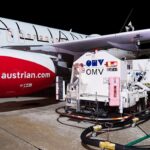
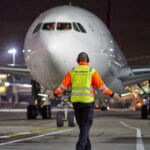
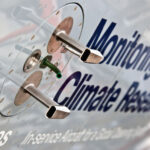



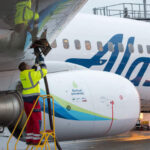
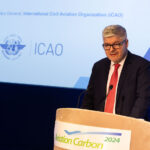



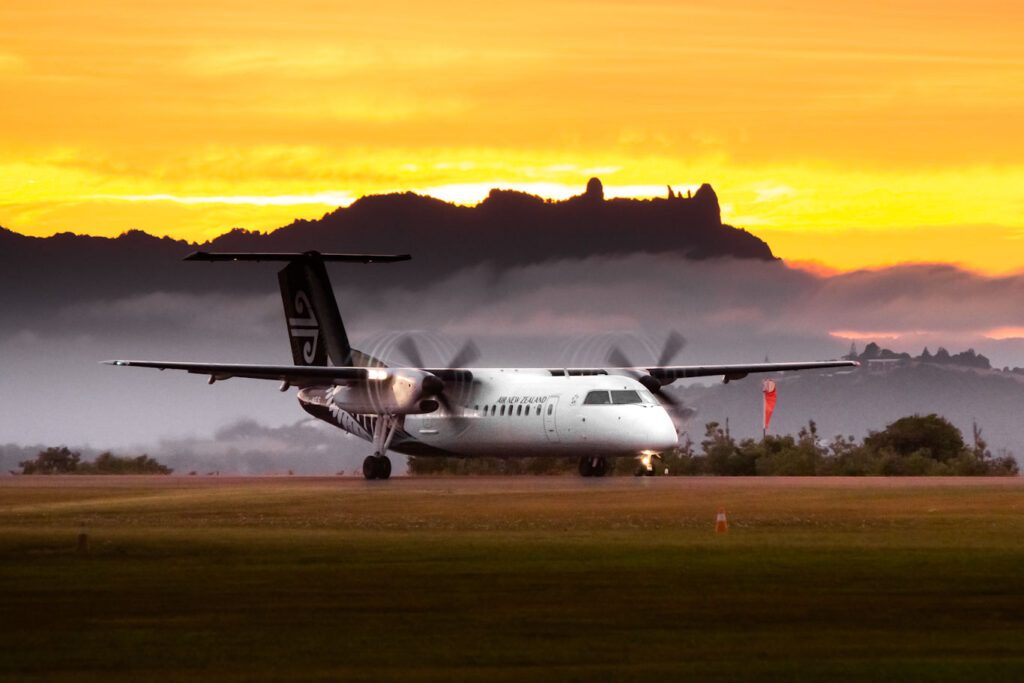


More News & Features
Commentary: China’s fair and equitable solution to civil aviation’s climate challenge
Advocacy group launches to speed up production and use of SAF across Asia
New Zealand could meet 25% of domestic jet fuel needs with SAF from wood waste, finds report
Airbus enters partnerships with airlines Wizz and EVA to help prepare for SAF introduction
Malaysia to produce SAF from palm oil waste, while Thailand pumps first SAF shipments to Bangkok’s airports
Asia-Pacific nations pledge closer collaboration on sustainable aviation at ICAO New Delhi summit